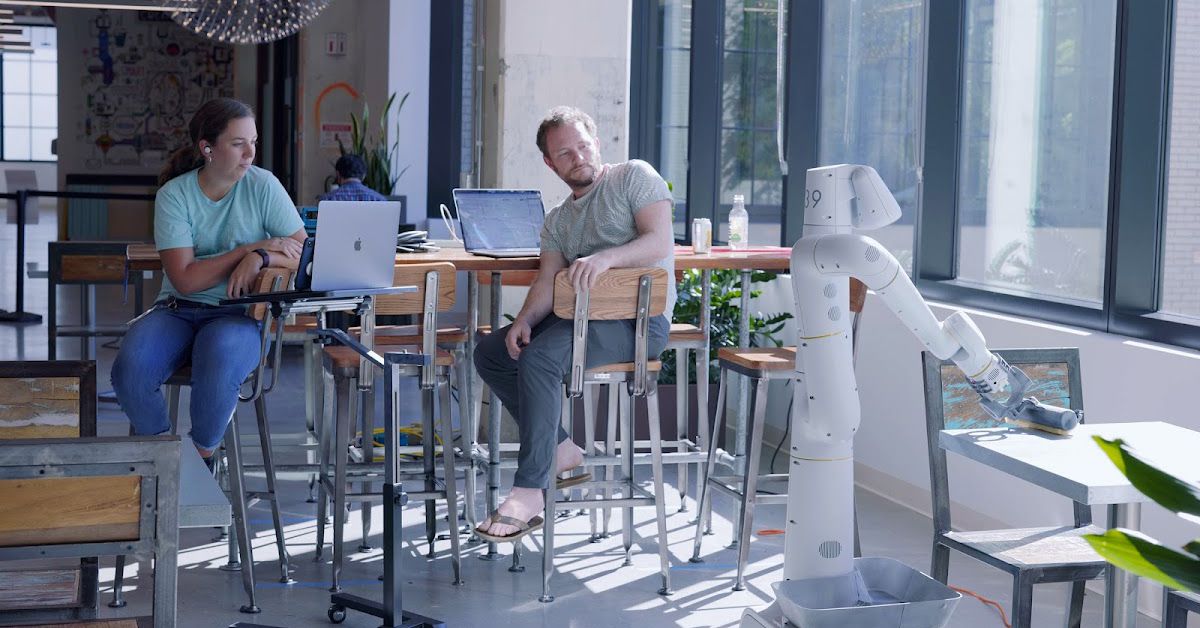Alphabet is putting its prototype robots to work cleaning up around Google’s offices
What does Google’s parent company Alphabet want with robots? Well, it would like them to clean up around the office, for a start.
The company announced today that its Everyday Robots Project — a team within its experimental X labs dedicated to creating “a general-purpose learning robot” — has moved some of its prototype machines out of the lab and into Google’s Bay Area campuses to carry out some light custodial tasks.
“We are now operating a fleet of more than 100 robot prototypes that are autonomously performing a range of useful tasks around our offices,” said Everyday Robot’s chief robot officer Hans Peter Brøndmo in a blog post. “The same robot that sorts trash can now be equipped with a squeegee to wipe tables and use the same gripper that grasps cups can learn to open doors.”
These robots in question are essentially arms on wheels, with a multipurpose gripper on the end of a flexible arm attached to a central tower. There’s a “head” on top of the tower with cameras and sensors for machine vision and what looks like a spinning lidar unit on the side, presumably for navigation.
As Brøndmo indicates, these bots were first seen sorting out recycling when Alphabet debuted the Everyday Robot team in 2019. The big promise that’s being made by the company (as well as by many other startups and rivals) is that machine learning will finally enable robots to operate in “unstructured” environments like homes and offices.
Right now, we’re very good at building machines that can carry out repetitive jobs in a factory, but we’re stumped when trying to get them to replicate simple tasks like cleaning up a kitchen or folding laundry.
Think about it: you may have seen robots from Boston Dynamics performing backflips and dancing to The Rolling Stones, but have you ever seen one take out the trash? It’s because getting a machine to manipulate never-before-seen objects in a novel setting (something humans do every day) is extremely difficult. This is the problem Alphabet wants to solve.
Is it going to? Well, maybe one day — if company execs feel it’s worth burning through millions of dollars in research to achieve this goal. Certainly, though, humans are going to be cheaper and more efficient than robots for these jobs in the foreseeable future. The update today from Everyday Robot is neat, but it’s far from a leap forward. You can see from the GIFs that Alphabet shared of its robots that they’re still slow and awkward, carrying out tasks inexpertly and at a glacial pace.
However, it’s still definitely something that the robots are being tested “in the wild” rather than in the lab. Compare Alphabet’s machines to Samsung’s Bot Handy, for example; a similar-looking tower-and-arm bot that the company showed off at CES last year, apparently pouring wine and loading a dishwasher. At least, Bot Handy looks like it’s performing these jobs, but really it was only carrying out a prearranged demo. Who knows how capable, if at all, this robot is in the real world? At least Alphabet is finding this out for itself.
For all the latest Technology News Click Here

